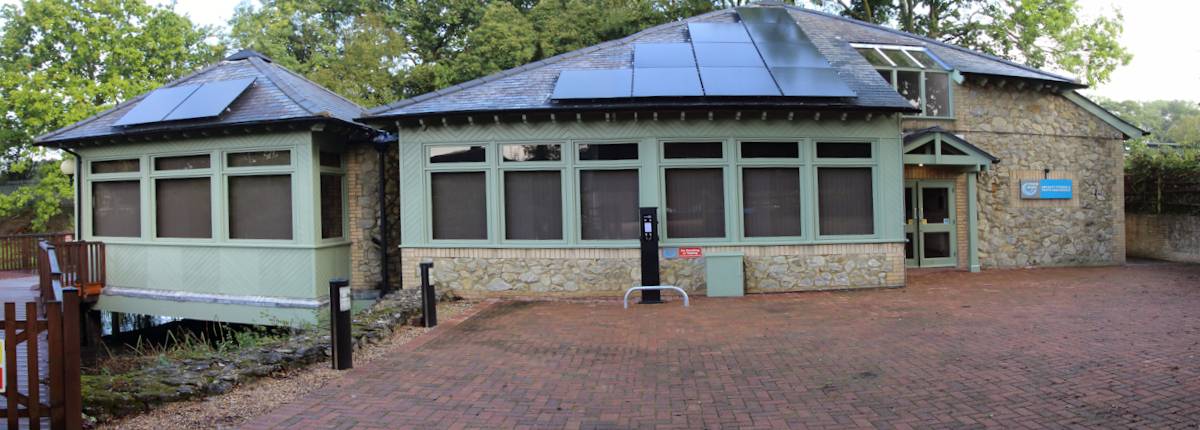View our latest and past news items.
- Details
- Published:
 |
Reclassify general aviation airfields as greenfield not brownfield sites: Government Response |
As the number of signatures has reached over 10,000 the Government published this response on 16 May 2024:
"We are not seeking to alter airfield classification at this current time.
The Government recognises the importance of the General Aviation (GA) industry for supporting key services as well as training and commercial use.
Critical to GA’s success is the network of airfields which reflect the diversity in the sector, differing in size and infrastructure capability, ranging from smaller airfields focused on training and educational opportunities, to larger regional and international business aviation hubs. They all have an important role in supporting the aviation sector.
The National Planning Policy Framework (NPPF) emphasises that planning policies should recognise the importance of maintaining a national network of GA airfields and their need to adapt and change over time. The NPPF is a material consideration in planning decisions, and each application is judged on its individual merits. It is for local planning authorities to make individual decisions based on the planning policy and guidance that reflect the local context and engagement with local stakeholders. The weight given to these considerations is a matter for the authority as the decision taker in the first instance.
The NPPF encourages effective use of land in meeting development needs, while safeguarding and improving the environment and ensuring safe and healthy living conditions. The NPPF states this should be in a way that makes as much use as possible of brownfield land.
Brownfield land is defined in the NPPF as “land which is or was occupied by a permanent structure, including the curtilage of the developed land (although it should not be assumed that the whole of the curtilage should be developed) and any associated fixed surface infrastructure”, with some specific exclusions.
Airfield buildings and their curtilage are currently regarded as brownfield land. However, as the policy above makes clear, it should not be assumed that the whole of the curtilage of a brownfield site should be developed.
Applications for planning permission to redevelop airfields must be determined in accordance with the development plan for the area unless material considerations indicate otherwise.
Applications for the reuse or redevelopment of airfields must also be considered in the context of wider national policy and account should be taken of the Government’s General Aviation Strategy. The NPPF acknowledges the significant contribution aviation makes to economic growth across the country – expecting planning policies, where supported by robust evidence, to identify and protect sites which could be critical in developing infrastructure to widen transport choice.
Department for Levelling Up, Housing and Communities"
You can view the response online here.
If the number of signatories reaches, or exceeds, 100,000 the Petitions Committee will consider it for a debate.
- Details
- Published:
 |
New Safety Sense Leaflet: VFR into IMC |
A new Safety Sense Leaflet has been published providing guidance to general aviation pilots on the risks and mitigations associated with continued Visual Flight Rules (VFR) flight into Instrument Meteorological Conditions (IMC).
This forms part of the popular Safety Sense series which are currently updating.
- Details
- Published:
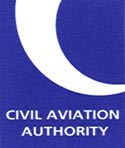 |
General Aviation Pilot Licensing Review Phase 2: Aeroplanes - Consultation Closes 22 May 2024
|
In October 2022, the CAA published CAP2335 (General Aviation Pilot Licensing & Training Simplification – Phase 1: Strategic Direction) as part of a 3 Phase program to simplify training and licensing for the UK’s General Aviation (GA) Sector.
The subsequent GA community response (CAP2532) showed strong support in several key areas for updating our current legislation with regards to Licensing and Training.
AOPA has been fully engaged with the process and made significant contributions to the proposals and community response.
This consultation (Phase 2) will explore these key areas in more detail, to ensure that the CAA are working towards the goals of the community whilst maintaining legislative compliance within these areas. The consultaion closes on 22 May 2024.
The outcome of this consultation will help finalise the proposals for the simplification of licensing and training. The final proposals and legal drafting will be developed with the Department for Transport and presented for legislative amendment Spring 2025.
- Details
- Published:
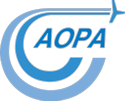 |
HIAL Airport 2024 Parking Charges reduced for light aircraft |
When HIAL first published their charges for 2024, AOPA contacted HIAL to raise a number of concerns about the significant increase in costs for private GA flights in light aircraft, in particular parking fees. AOPA asked for these to be reviewed and HIAL have now revised charges for aircraft up to 2.5 tonnes:
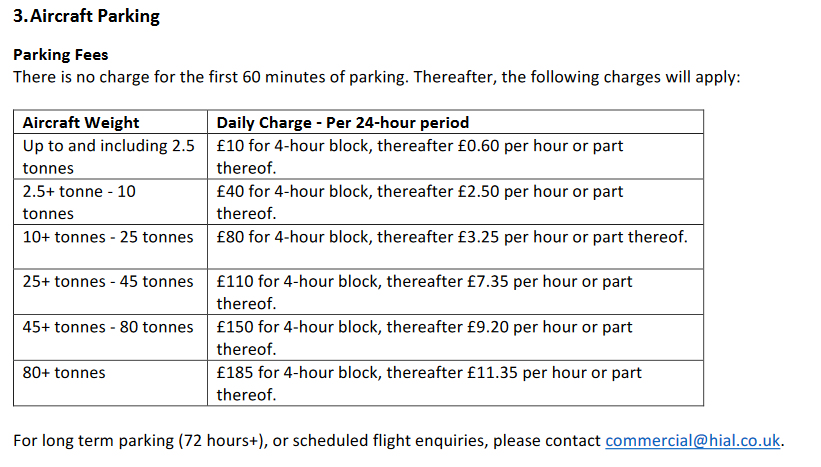
Full details of HIAL terms and conditions can be found here.
- Details
- Published:
 |
Online GAR Response Messages - Common Travel Area |
When travelling within the Common Travel Area (CTA) of UK & Northern Ireland, Channel Islands, Isle of Man and Ireland no Response Message will be displayed. This was not obvious to users of the service and in response to a query from AOPA the UPT Queries Team have advised that the guidance notes have been updated as below:
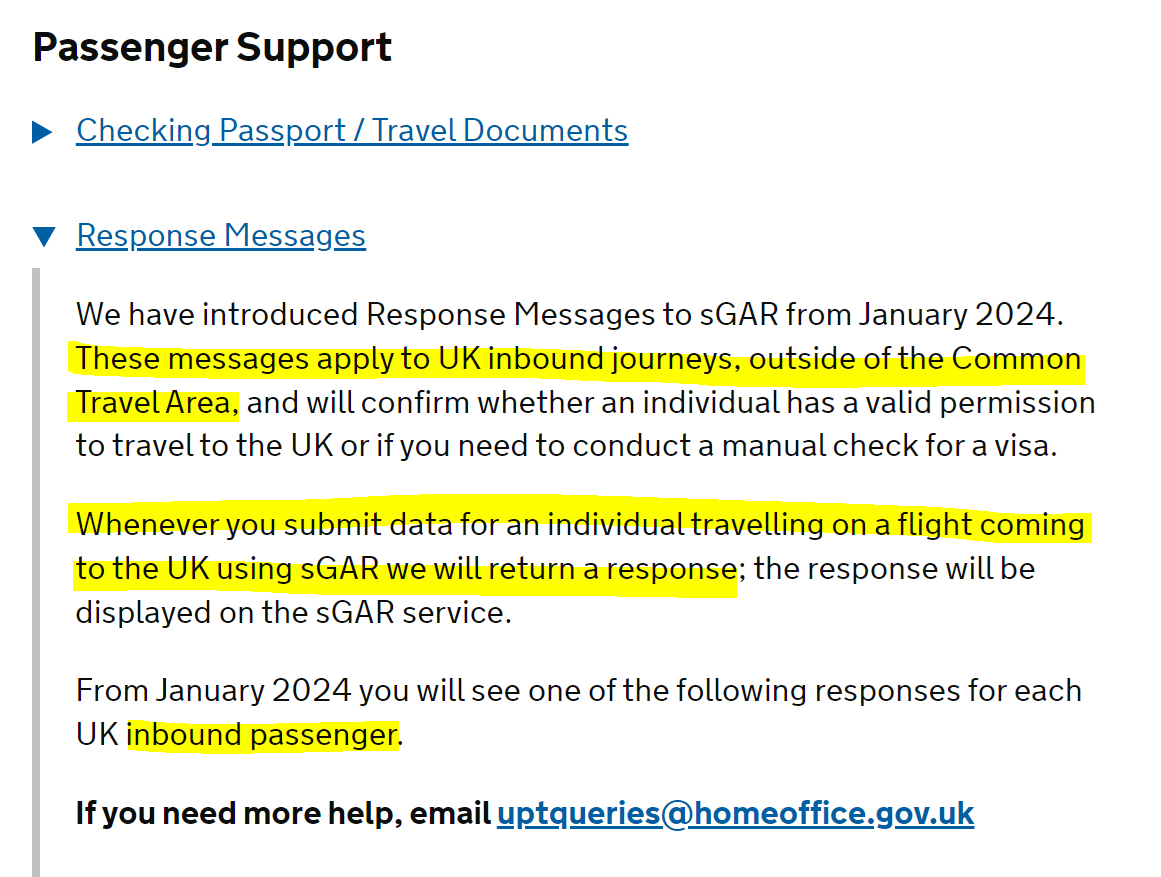
- Details
- Published:
 |
HIAL Airport Charges Increase from 1 April 2024 |
Highland and Islands Airport Ltd (HIAL) have published charges for the use of their airports with effect from 1 April 2024. Details can be found here.
For private GA flights in light aircraft the charges have increased over 300% compared to 2023 charges. The significant changes have been the introduction of a navigation fee of £15 (+VAT) for aircraft under 2,500 kg and parking fees, the first 60 minutes are free and then charges of £40 (exc VAT) for the next 4 hours and then £2.50 (exc VAT) per hour, or part thereof, thereafter for aircraft up to 10,000 kg. An 8 hour stay for a private flight in an aircarft under 2,500 kg the basic cost will be:
Landing Fee: £21 +VAT
Navigation Fee: £15 + VAT
Parking: 60 minutes free, £40 + VAT for the next 4 Hours and £2.50 + VAT for the next 3 hours
Total: £100.20 inc VAT (The cost in 2023 would have been £31.18 inc VAT)
Other services would be additionally charged for if used.
When the 2024 charges were published, AOPA contacted HIAL with a number of questions in order to establish what charges would apply to private flights and some further clarifications. We have today received a response from Alastair Gleave, HIAL Chief Commercial Office. The salient points from his response are:
1) For clarification cost sharing flights meet the deifintion of a private flight. HIAL will review their wording.
2) The navigation fee covers all aspects of air navigation service provision, including Communication, Navigation, Surveillance (CNS), Meteorological (MET) and Air Traffic Services (ATS) – both Air Traffic Control (ATC) and Aerodrome Flight Information Service (AFIS), as applicable. Therefore, the navigation fee for air navigation services will apply to both IFR and VFR operations.
AOPA: Many of the services listed are not required by private pilots who self-handle and this charge will be challenged.
3) The review of HIAL’s Conditions of Use and charges identified aircraft parking as an area that required re-assessment. The published parking fees apply for all aircraft. The feedback received has highlighted the unintended impact of the new pricing scales on the private light aircraft community. The inclusion of an additional parking scale for aircraft up to 2.5 tonnes will be explored.
AOPA: It has been pointed out to HIAL that Dundee offer a 24 hour flat fee of £15 (+VAT) per day for light aircraft parking on grass. A similar flat fee should be considered for other HIAL airports.
Martin Robinson
CEO AOPA UK
- Details
- Published:
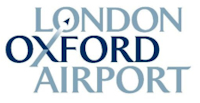 |
ACP-2023-033 London Oxford Airport Airspace Change Proposal Stakeholder Engagement: CAP 1616 DESIGN PRINCIPLES |
Oxford Aviation Services Limited (OASL), the operator of London Oxford Airport proposes to modernise its air navigation procedures and associated infrastructure. To progress this, they are required to commence a formal Airspace Change Proposal (ACP) process which is regulated and overseen by the United Kingdom (UK) Civil Aviation Authority (CAA).
In support of this stakeholed engagament, the following documents have been published:
To download either document click on the three dots.
Reponses regarding the draft Design Principles must be received by 24 April 2024. If you wish to provide AOPA with your views:
- Details
- Published:
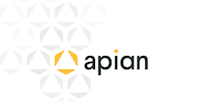 |
ACP-2023-015: Northumbria NHS Air Grid Stakeholder Engagement Part 3 |
Apian are conducting a new period of stakeholder engagement from 28th March to 26th April, 2024. This update aims to inform you of revised timelines for the start of this project and provide further project details. The attached brief outlines these updates, and we encourage you to review the material and provide any feedback you may have on the operational and safety aspects of the trial.
All responses from previous engagement periods are still valid and will be submitted to the CAA as part of our application.
Apian have provided this update for consideration:
Download a copy if you want to use any links in the document. (Click on the 3 dots).
You can respond directly via this link by the 26th April 2024 and/or let AOPA know your views:
- Details
- Published:
 |
2024-25 CAA Schemes of Charges Publication |
The CAA has published the revised 14 Schemes of Charges and the Consultation Response Document on 18 March 2024 under CAA UK Official Record Series 5, that will be legally implemented with effect from 1 April 2024.
The current 14 Schemes of Charges will be effective to and including 31 March 2024.
- Details
- Published:
 |
UK Civil Aviation Authority proposes streamlined licensing system for GA Pilots |
The CAA is working to simplify the licensing process for the general aviation community as part of its General Aviation Pilot Licensing and Training Simplification project. AOPA have been fully engaged with this project.
These include consolidating the number of licences on offer, reducing the number of examinations for the gaining of licences and changes to the class rating structure including requirements for maintenance of competence.
Reform of the system was a high priority for the general aviation community when asked by the UK Civil Aviation Authority and this signals a major step closer to delivering on those wishes.
Michael Macdonald, Head of General Aviation at the UK Civil Aviation Authority, said:
“To all pilots, the licence they hold is incredibly important. We’re looking to simplify the system to make it easier for new pilots to choose their path in aviation, and for existing pilots to maintain and upgrade their licences, all whilst maintaining the UK’s world-class level of safety.
“Experts from the community have been involved throughout the development process of these measures, which we feel will really benefit those looking to gain licences in the UK.”
Following the completion of CAP2335 – General Aviation (GA) Pilot Licensing & Training Simplification Phase 1CAP2335 – General Aviation (GA) Pilot Licensing & Training Simplification Phase 1 in Spring 2023, the CAA are now publishing a suite of five consultation papers setting out the detailed direction for licenses and ratings across the GA aircraft categories:
Aeroplanes including Microlights
The consultations will be open for 10 weeks and will close on the 22 May 2024.
- Details
- Published:
 |
CAP 413 SI 2024/01: Special Use Airspace Activity Information and Crossing Services |
Supplementary Instruction CAP 413 Number: 2024/01 has been published by the UK CAA. The purpose of this Supplementary Instruction (SI) is to detail changes being made to the Radiotelephony Manual (CAP 413) with effect from 22 April 2024.
The SUA Policy Statement amends the terms danger area crossing service (DACS) and danger area activity information service (DAAIS) to SUA crossing service and SUA activity information service. This change necessitates amendment to CAP 413 to ensure that it correlates with the SUA Policy and to provide clarity on what the two services provide.
These changes are largely editorial with little effect on the RT phraseology.
AIP ENR 1.1 Section 5 is undergoing extensive amendment at the next available AIRAC to reflect the introduction of the SUA Policy. For further information, please review the airspace policy statement which can be downloaded from the CAA’s website.
Annex A of this document details the amendments to phraseology that will apply with effect from 22 April 2024.
- Guidance for temporary and trial airspace change proposals
- The General Aviation (Flight Information, Persons on Board and Civil Penalties) Regulations 2024 (‘the 2024 regulations’)
- Publication of CAA Policy for the Establishment and Operation of Special Use Airspace
- Application Form Submission Service update

